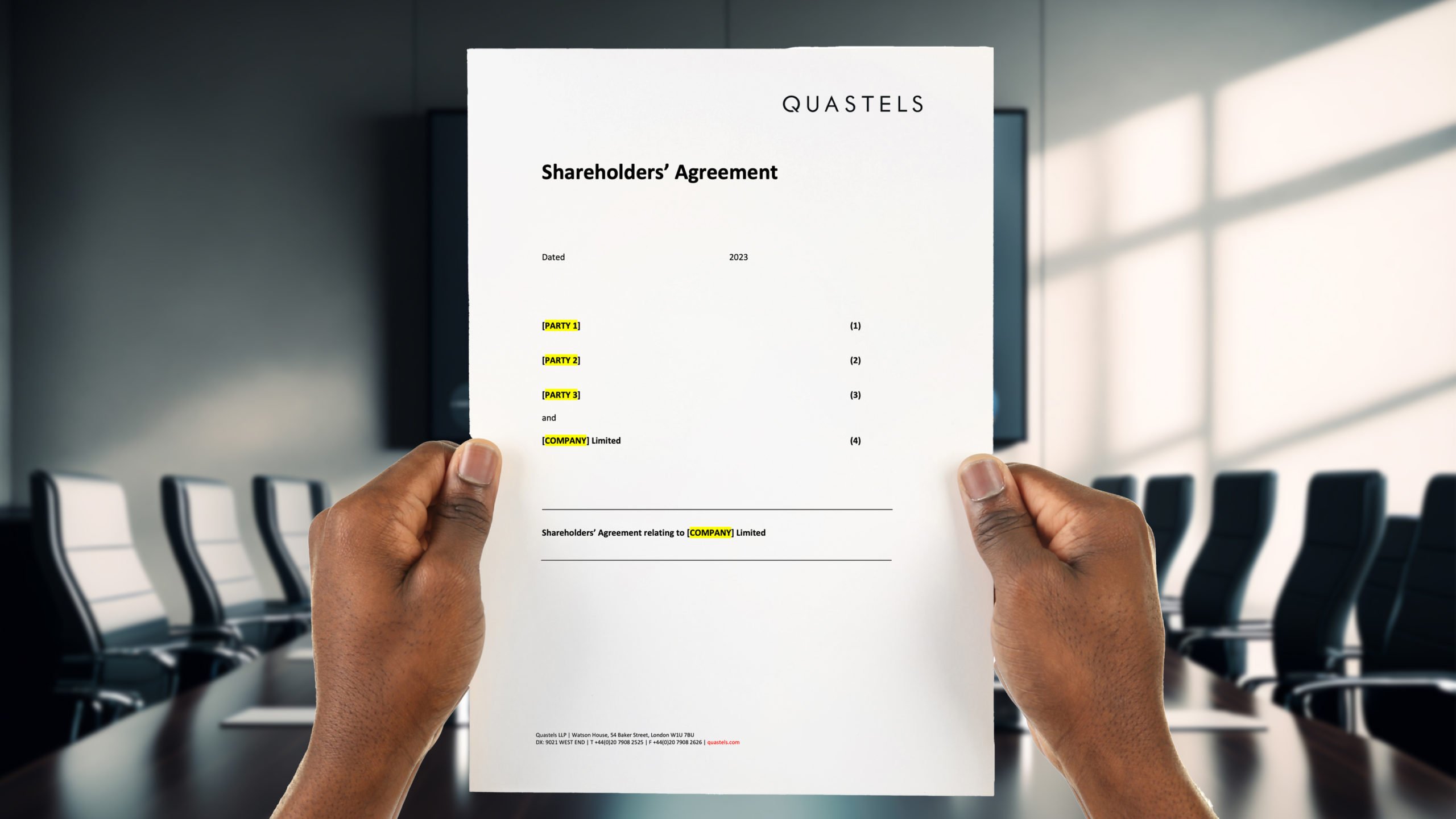When starting out with a new business venture, many aspects demand your attention, from product development and marketing strategies to financial planning and recruitment.
In this bustling landscape, it’s not uncommon for certain critical elements to slip under the radar. Among them, the question arises: “Do I need a Shareholders’ Agreement?”
This is a vital consideration, particularly for SMEs and owner-managed businesses, as it lays the groundwork for a secure and smoothly running company, offering a safety net for potential future scenarios. Here’s why:
Balancing Powers and Decisions
Shareholders’ agreements come into play when it’s time to make significant commercial decisions.
By stipulating voting rights and consent thresholds for major choices, such agreements shield minority shareholders and ensure balanced decision-making.
Essentially decision making under a shareholders’ agreement is all about maintaining the harmony and integrity of the trajectory of the business.
Identifying Roles and Responsibilities
Typically, shareholders will have different roles within a growing venture. One shareholder may be drawing a salary and responsible for the day-to-day operations of the business, another shareholder may be providing funding but not getting involved in the operational aspects and the third may just be providing marketing and PR support.
Whilst the employee shareholder will have their obligations governed by an employment contract, the other shareholders should have their obligations defined in writing so that there is clarity and a level playing field in relation to what each party is bringing to the table.
Defining Exit Strategies
Shareholders’ agreements can set out the roadmap for the entire projected pathway of your business, from incorporation all the way through to exit.
Setting out the anticipated exit plan and associated requirements (such as consent thresholds) for a sale can help focus the parties and avoid disputes in the future.
Navigating Shareholder Departures
When a shareholder decides to leave, whether due to relocation, new challenges, or other reasons, default articles might not offer the best solutions. Shareholders’ agreements provide mechanisms to determine fair valuations, ensuring a smoother process of share transfer.
Critical questions are addressed, such as: Should a departing shareholder retain their shares, or must they offer them to remaining shareholders?
Good leaver, bad leaver – these distinctions matter. A shareholders’ agreement can outline provisions for “bad leavers,” preventing those who breach contracts from profiting. This ensures that a departing shareholder is held accountable for misconduct and doesn’t benefit unjustly.
Extended Safeguards
Just as employee contracts include restrictive covenants, shareholders’ agreements can incorporate such clauses which can supplement or be in replacement of any restrictions on employees.
This extension of protection helps safeguard the business from competition, both during shareholders’ tenure and after their departure.
Peace Of Mind
Consider a shareholders’ agreement as the business equivalent of a prenuptial agreement. You hope that you can sign it, put it away in a draw and never look at it again. However, it can be a practical safeguard for the unpredictable.
Just as prenuptial agreements provide assurance in personal relationships, shareholders’ agreements offer protection in the commercial world.
Incorporating these insights into a shareholders’ agreement can seem daunting, but we can help ensure that nothing falls through the cracks.
Whether it’s defining exit strategies or orchestrating airtight decision-making, we can help you craft a shareholders’ agreement that empowers your business for success.
To discuss any of the points raised in this article, please contact Adam Convisser or fill in the form below.



